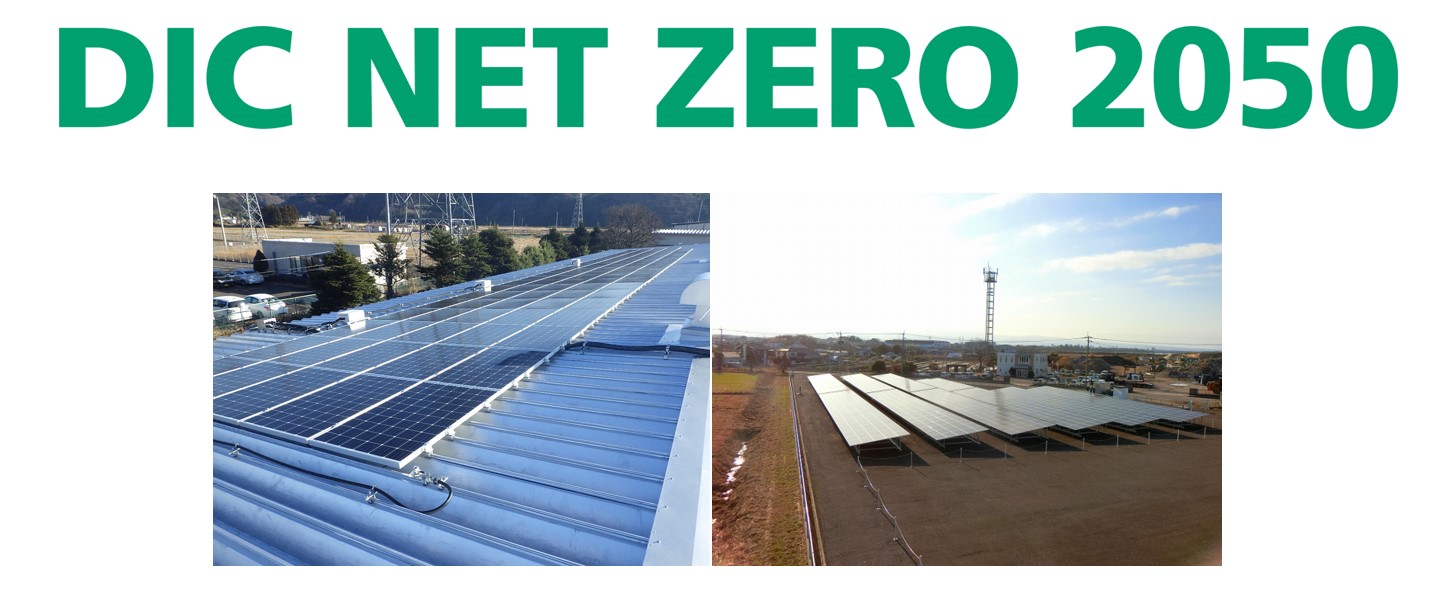DIC Group Revises Its Long-Term Target for the Reduction of CO2 Emissions in Line with Its New Goal of Achieving Carbon Neutrality by 2050
—Reduce CO2 emissions 50% by fiscal year 2030 through the introduction
of an in-house carbon pricing system—
- Sustainability
- News Release
Tokyo, Japan—DIC today announced that it has revised Group’s long-term target for the reduction of CO2 emissions. DIC Group, which now aims to achieve carbon neutrality—net zero CO2 emissions—by fiscal year 2050, will now seek to reduce CO2 emissions by 50%*from the fiscal year 2013 level by fiscal year 2030.
With the goal of ensuring that DIC remains a company that is loved and respected worldwide, DIC has positioned sustainability, including environmental issues, as a key management priority. In May 2019, the Company announced its support for the Task Force on Climate-related Financial Disclosures (TCFD), recognizing climate change as a critical factor affecting its businesses, and pledged to disclose related information in line with TCFD recommendations. Having undertaken to reduce its CO2 emissions by 30% from the fiscal year 2013 level by fiscal year 2030 in its DIC111 medium-term management plan, announced in 2019, DIC Group has since promoted a variety of determined initiatives.
Against a backdrop of accelerated efforts worldwide to achieve decarbonization, in April 2021 the Japan Climate Initiative (JCI) released a message calling for the setting of an ambitious target** for Japan to help ensure realization of the goal of the Paris Agreement. DIC, as a member of the JCI, endorsed this message and, determined to step up its own efforts in this area, has resolved to revise its long-term target for reducing CO2 emissions.
To attain its new target, DIC Group will continue to advance wide-ranging efforts. These include increasing its use of renewable energy, deploying its proprietary sustainability index, introducing in-house carbon pricing and collaborating to establish closed-loop recycling systems.
・Actively advance the use of renewable energy, including solar power, wind power and power generated using biomass, and increase renewable energy to 15% of the total energy used by the DIC Group in Japan.
・Deploy its proprietary sustainability index to clarify the social value the DIC Group provides, with the aim of expediting the transformation of the Group’s business portfolio to focus on businesses that deliver both social value and economic value.
・Use carbon pricing to quantify climate change risk. Introduce an internal carbon pricing system and provide economic incentives for reducing CO2 emissions. Apply this system to new investment projects from fiscal year 2021 forward and create a mechanism for factoring the positive impact of capital investments on efforts to lower CO2 emissions into investment calculations.
・Explore full-scale collaboration with FP Corporation (FPCO) in the practical implementation of a closed-loop recycling system for polystyrene, used in plastic containers for food products.
* Range of target: Scope 1 and 2 emissions.
**A reduction in greenhouse gas emissions of 45% or more and an increase in renewable energy used in Japan of between 40% and 50%.
- Ends -
The DIC Group’s Approach to Value Creation
With the aim of ensuring a sustainable society, the DIC Group strives to provide products and solutions that respond to the needs of markets and its customers and add color and comfort to life.
Sustainability Index
To accelerate the transformation of its business portfolio by focusing on businesses that deliver both social value and economic value, the DIC Group has formulated a proprietary sustainability index to clarify the social value that the Group provides.
Support for the TCFD
In May 2019, the DIC Group declared its support for the Task Force on Climate-related Financial Disclosures (TCFD). Recognizing climate change as a critical factor affecting its businesses, the Group pledges to disclose related information in line with TCFD recommendations
DIC and FPCO Explore Collaboration in the Practical Implementation of a Closed-Loop Recycling System for Polystyrene that Employs Chemical Recycling (November 16, 2020)
DIC Endorses the JCl Message Calling for an Ambitious 2030 Target for Japan to Ensure Realization of the Paris Agreement Goal (April 23, 2021)
*Note: The files are in Adobe Acrobat Format. To view them you will need Acrobat Reader.



